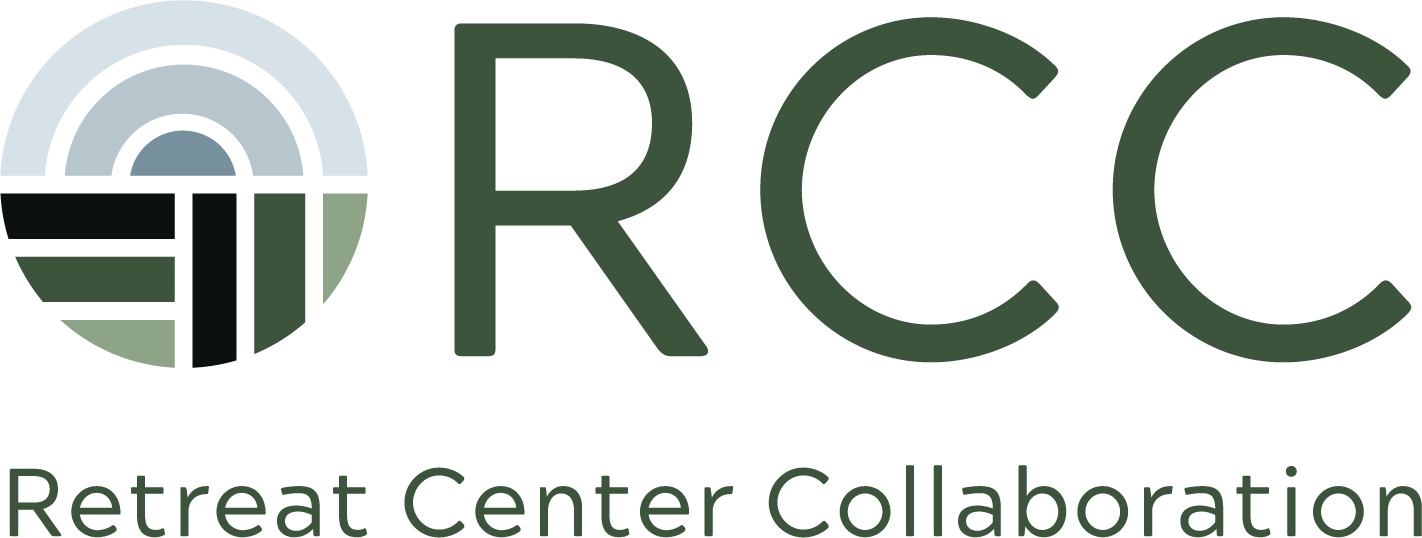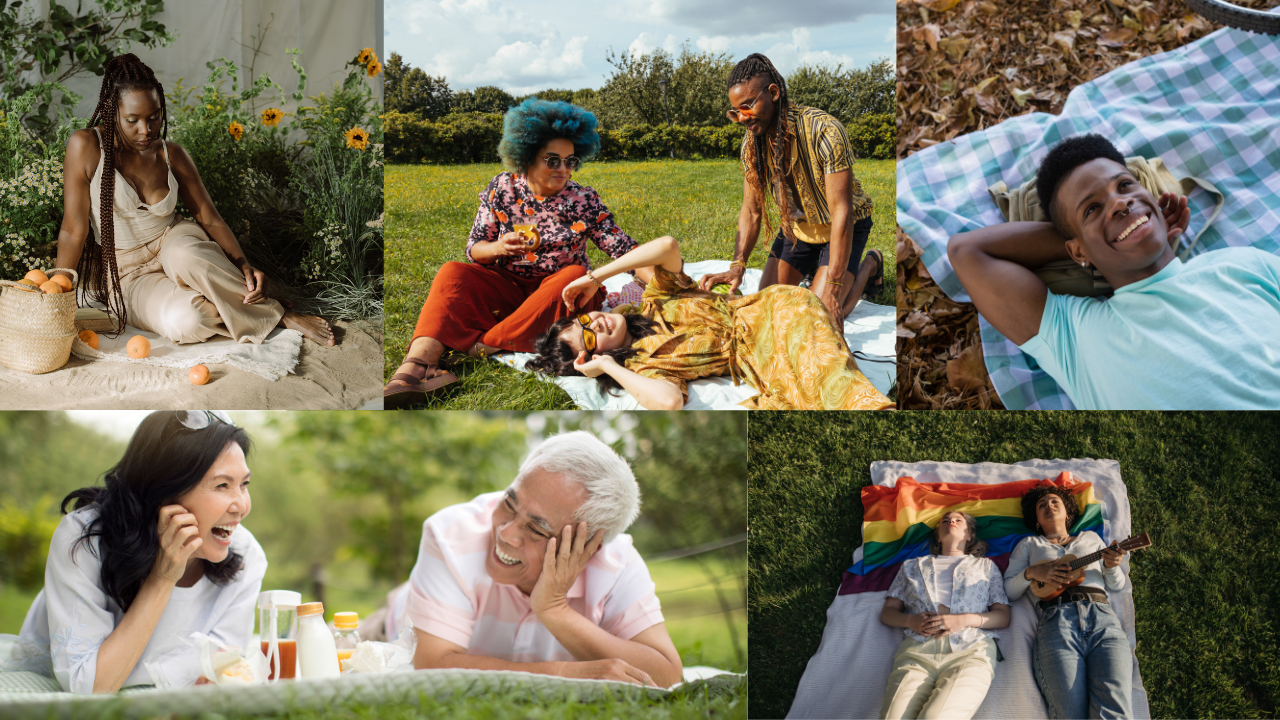Beyond Scholarship: Inclusive Hospitality and Belonging
Many centers are approaching JEDI issues in unique ways. For this community call conversation, we built on Arleen Peterson's recent question, "What are retreat centers doing - beyond scholarship - to build a sense of belonging for BIPOC people?"
This question is a helpful guide for centers to compare notes on their options, actions, and agency in continuing to move toward right relationship and repair.
Below are some highlights from our conversation. (You can also check out the unabridged meeting notes here, or play the video above and on YouTube).
Arleen at PHJC
PHJC’s retreat center, Lindenwood, has a large campus that can accommodate 100 people overnight, and operates several different ministries onsite
Arleen is the first Black executive hired into PHJC, only two other POC on entire campus
How are you marketing to and retaining BIPOC retreat guests?
Pushback against diversity on campus at PHJC has included community members actively removing fliers promoting BIPOC and diversity-related retreats
Kirstin at GilChrist
GilChrist has launched a retreat equity fund
Kirstin recently wrote this article about GilChrist’s work: Expanding Welcome: Retreat Fund Creates New Pathways of Invitation and Access
How do we increase the number of people who can “see themselves at GilChrist”?
Who still can’t see themselves at GilChrist and why?
Addressing the concern of a cultural “bait-and-switch” for retreat attendees
How do we make GilChrist a safer space for those who don’t look like our staff? Library, physical accessibility, etc.
Challenge of “getting it just right” (tyranny of perfection) before going public with new DEI plans - Instead, we’re explicitly inviting feedback during fund launch and usage
The fund is meant to address the barriers that “pay what you can” doesn’t address - flexible funding to support guests’ transportation costs, childcare, lost wages, stays at neighborhood retreat centers, pathways to belonging, including funds for language interpreters, facilitators
So far the fund hasn’t been used - what will be most helpful going forward?
Jenna / Eset Rose / Robert at Kripalu
Iterative process, learning as we go
We’ve developed an equity team, an equity statement, within a regenerative community model
Going in to fix something without gathering community input just causes further harm
Work from the inside out, culturally
Activists-in-residence program started in 2021 - piloting how we can do more with what we have
Inviting one or two people of color into the retreat center’s white-dominant space could create more harm than good for people of color. Instead, we’re inviting BIPOC folks in to participate via community, as communities
Being transparent with BIPOC activists-in-residence beyond the residency - create a partnership - can’t promise there won’t be harm here - here’s where we are as an organization - follow up afterward - what do you see here, what could be better to support you and your work?
Michelle Cassandra Johnson and Kerri Kelly of Race and Resilience facilitated several rounds of consciousness-raising with our staff and leadership. We then created an equity team, and then an equity statement. Now we’re working on an equity plan. Almost a code of conduct - what do we do when harm happens? Constellation of care around the guest stay. How does this filter into HR and programming and IT?
What’s beautiful is the serious growth pains within our org. It has been challenging. We’re establishing a culture of equity within the team - a slow drip - patience and grit - taking root.
Relationship with the Stockbridge Munsee Mohican tribe - honoring that 15-year relationship here at Kripalu - simple land recognitions, sharing their story - stays for tribal members are free, funded by Kripalu - exploring a collective act of reparations with more community partners and local cultural institutions so our actions are woven into the local community.
Suzanne at ARC Retreat Community
Our center is on 90 acres, been here 45 years, with 21 rooms
Indigenous burial mounds and artifacts onsite. The county is 99% white, 1% Indigenous
Vision is a transformed world, spiritual life through relationship - founded in Christian ecumenicalism, now interspiritual - “exemplifying a just and inclusive world where every voice is valued and respected”
Residential community model wasn’t working, almost closed in 2019. Listening sessions yielded “we’re not a hotel” and “we’re failing” - shift from scarcity - then George Floyd was murdered, and we’re 1 hour from Minneapolis
We developed a well-intended fund for POC to come and rest - but this stance of “We know what you need” didn’t sit well.
We received a $10k donation for an equity fund. We reached out to local BIPOC leaders as white-skin leaders, would you be willing to talk with us about this money? Don’t want to make assumptions - what needs to happen for belonging? The Justice League came out of these meetings. We received critique from BIPOC participants during these conversations
“The retreat center isn’t a safe place for us.”
“Silence is not contemplative for us - we’ve been silenced enough.“
“For me to belong, I have to be free to express.”
“We see our artifacts, but we don’t see our people”
Respecting various voices - strong beliefs and different lived experiences - this is hard work that requires some personal healing. After our RHI retreat - we can see that we’ve said “all are welcome”, but are now living into it - what is different? The energy - people see themselves here.
Cheryl at Harmony Hill
As a white person, I can’t make decisions for BIPOC people about what they need. Really commend folks who have done the listening sessions to gather input.
Zach at Wild Vessel
What is actually unique and valuable to folks of color that retreat centers are currently offering?
Arleen at PHJC
A good example I’ve experienced is a Black Women’s Retreat at Commonweal
Facilitation from women of color
Amazing food - not catering to senior citizens who don’t like flavor
Party, music, dancing, enjoyment, inviting space
Jenyng at Project SOUL
As a friend of mine says, 'hard and holy work' - more than just about access
It's removing systemic barriers without removing dignity
Robert at Kripalu
Feedback we’ve gotten of what has been especially helpful for BIPOC guests:
First time receiving yoga instruction from a Black yoga instructor
Being able to gather in community as people of color
Site was local and easy to get to
Breadth of programming - access to variety
Peter at Breitenbush
Make common cause with a BIPOC-centric organization and become useful to that organization
Breitenbush received a grant to do so and hosted a first annual “wellness weekend” for Wild Diversity, a BIPOC-serving org that brings people into nature. It was a success, we’re doing it again this fall.
Culturally we are a Caucasian-led/based organization, so this is important to us, expanding who uses this space - we started to bridge that ‘trust gap’ in service to their mission and vision
Jenyng at Project SOUL
Through a permaculture design course we connected to a local community-based organization (CBO) called La Plaza - it’s a Latinx community. Redbird identifies as being in an “earth-keeper” role, rather than a facilities/groundskeeping or land stewardship role, and shared some critique of the term ‘steward.’ This was powerful within a white-dominant permaculture class that tries to include diverse perspectives.
Marlene at CalPac UMC
Is the notion of ‘retreat’ something that resonates with Indigenous groups and cultures?
Or is this whole concept/construct of ‘retreat’ that comes out of Catholic monastic traditions just not resonant?
Also the word ‘inclusion’ has its challenges - the power stays with those who have power to ‘include’ others.
Arleen at PHJC
‘Retreat’ is very much a different concept for many BIPOC individuals who grew up in inner-city communities.
Here at Lindenwood we’re 1.5 hours away from downtown Chicago.
Retreat centers are often in ‘sundown towns’ - Am I safe in a place like this?
Sarah at Omega
Importance of relationships - engaging with BIPOC leaders and communities to determine what is a welcome invitation?
Retreats for nonprofits over the past dozen years has allowed us to build relationships regionally - they can have more space to do their own work, we hold the space
Engaged with individuals and networks for our Women of Color retreats - with different resources, both external funders and internal development funding.
Space, hosting, and infrastructure for external retreat programming:
Asian Boss Ladies and Black Women’s Business Collective
Robert at Kripalu
Reality of this issue is it requires both urgency and slowing down. The need is urgent.
Inclusion - do we really want everyone sitting at this table? Or is there a better place to do this, a place we can identify and go to together?
Cheryl at Harmony Hill
Before we do outreach, it’s important that as organizations, we look at ourselves and where we do harm. Training and awareness work needs to be done first, before making invitations.
Tom at Caroline Furnace
For us, partnerships are coming from more intentional education and learning within our organization. The more I learn, the more I am finding new ways to connect. Read more, participate more, and guess what? The rest of your staff and stakeholders will follow along.
Eve at Pearlstone wrote in with some of the ways they’ve been exploring this:
An example of our BIPOC pricing Permaculture Design Certificate Course (see the green box to the right)
Our JEDI statement and Land Acknowledgement
Pearlstone’s Staff Culture and JEDI Task Force brings a 20-minute cultural conversation to each monthly staff meeting, and is writing the new organization’s Play Book
Recommend that all staff read this Newsletter - Jews of Color Initiative and watch this Racism in the Jewish Community: The Uncomfortable Truth - YouTube video.
Spent a significant amount of money and time completing a stream restoration project this year. One of the things we did while undertaking this ecological project was work with our partners at Baltimore American Indian Center. This process will change the name of a stream on our campus from ‘Unnamed Branch of the Patapsco River’ to Tëmakwehane. Tëmakwehane (pronounced tuh-MAH-kway-HAH-nay) means Beaver Creek in the Lenape language.
Is your center exploring new ways of expanding welcome beyond providing scholarships?
Connect with the RCC community and let us know what you’re learning.
Or email our program director, Ben Scott-Brandt, for more information.

